275 MacLaren Street, Ottawa, ON K2P 0L9
Research Start-up Summary and Abstract:
This project follows up on our earlier work on the discussion paper regarding the constitutional duty to consult (Hughes & Stewart, 2015) and work for the New Brunswick Aboriginal Peoples Council on the representational needs and aspirations of off-reserve Aboriginal populations in New Brunswick titled “Non-Status and Off-Reserve Aboriginal Representation in New Brunswick” (Hughes, Plummer & Stewart, 2015).
In our discussion paper, we identified three obstacles in the jurisprudence and governmental practice to engaging the duty to consult for the benefit of urban Aboriginal populations: a preoccupation with land and resource-based rights; the uncertain legal status of the Aboriginal identity of many urban Aboriginal people; and a lack of governmental and judicial awareness of, and willingness to engage with, organizations providing political leadership and/or social services to urban Aboriginal people. We also identified that many of the consultative needs of urban Aboriginal people and organizations attach to legal interests that might broadly be characterized as positive rights including health care, employment or culturally appropriate service delivery in childcare, community supported living, elder care etc.
Section 35(4) of the Constitution Act, 1982 provides that “aboriginal and treaty rights are guaranteed equally to male and female persons. This section has proven to be somewhat of a dead letter. While the Supreme Court of Canada has produced an expansive jurisprudence on Aboriginal and treaty rights, importantly including procedural rights to consultation and accommodation prior to the actual recognition of rights, these rights have accrued exclusively with respect to land and land-based resources for on-reserve populations. The socio-economic, cultural and linguistic rights of off-reserve populations have not seen similar recognition. This lopsided development of the law has a differential impact on Aboriginal women and people of mixed Aboriginal and non-Aboriginal heritage in the maternal line.
Engagement Objectives:
In our research, we seek to tease out the gender dimension of the duty to consult. We want to query whether the duty to consult as currently elaborated in the jurisprudence carries a gender bias. Urban Aboriginal women have long complained that governmental engagement has been predominated by representing the interests of on-reserve populations and male-dominated organizations. However, these complaints have gone largely unheard by the courts. A key reason for this lack of responsiveness by the courts has been evidentiary. In the NWAC decision, the Supreme Court was not persuaded that the interests of Aboriginal women warranted separate consideration, nor was the Court convinced that the Assembly of First Nations had a gender bias. The Court did not consider the intersectional nature of off-reserve and female underrepresentation. Our research seeks to lay the foundation towards making the case for an intersectional analysis and to draw out the representational capacity and expertise of urban Aboriginal women as well as the gendered representational gap caused by reliance on Indian Act governance structures.
Methodology:
Our research is framed in terms of the human rights paradigm of intersectionality. (Dekha, 2004; Borrows, 2013) The experience of adverse legal and social treatment of Aboriginal women living off-reserve has dimensions not present for other women and other Aboriginals. At the same time, these intersections have also produced a capacity and experience of advocacy and Aboriginal women leadership. The proposed research proceeds in three parts: a doctrinal review of the jurisprudence on s. 35 of the Constitution Act, 1982 and gender equality, particularly the decision of the Supreme Court in Native Women’s Association v Canada, [1994] 3 SCR 627 and its potential interaction with the duty to consult; an analysis of a differential gender impact of recognized Aboriginal and treaty rights in favour of male or male-descendant Aboriginals; and the development of a proposal for extending procedural duties in relation to Aboriginal and treaty rights in areas of socio-economic, cultural and linguistic rights.
In addition to continuing our case-based and academic legal research, we will interview women who are leaders in Aboriginal communities and organizations to identify and describe areas of high priority for Aboriginal women and Aboriginal descendants in the maternal line; to seek their expertise in advocating for urban Aboriginal women; and to document the consultative capacity and needs of urban Aboriginal women and their representatives.
Collaborators and Team Members:
New Brunswick Aboriginal Peoples Council
Elder, Imelda Perley
Main contact:
Dr. Jula Hughes, Faculty of Law, UNB
[email protected]
Roy Stewart, JD Candidate, Faculty of Law, UNB
[email protected]